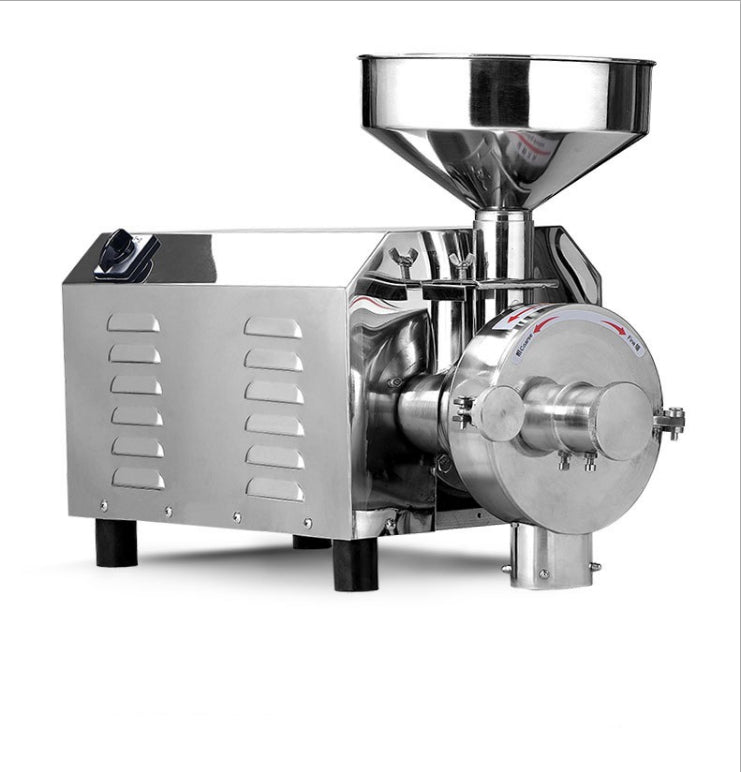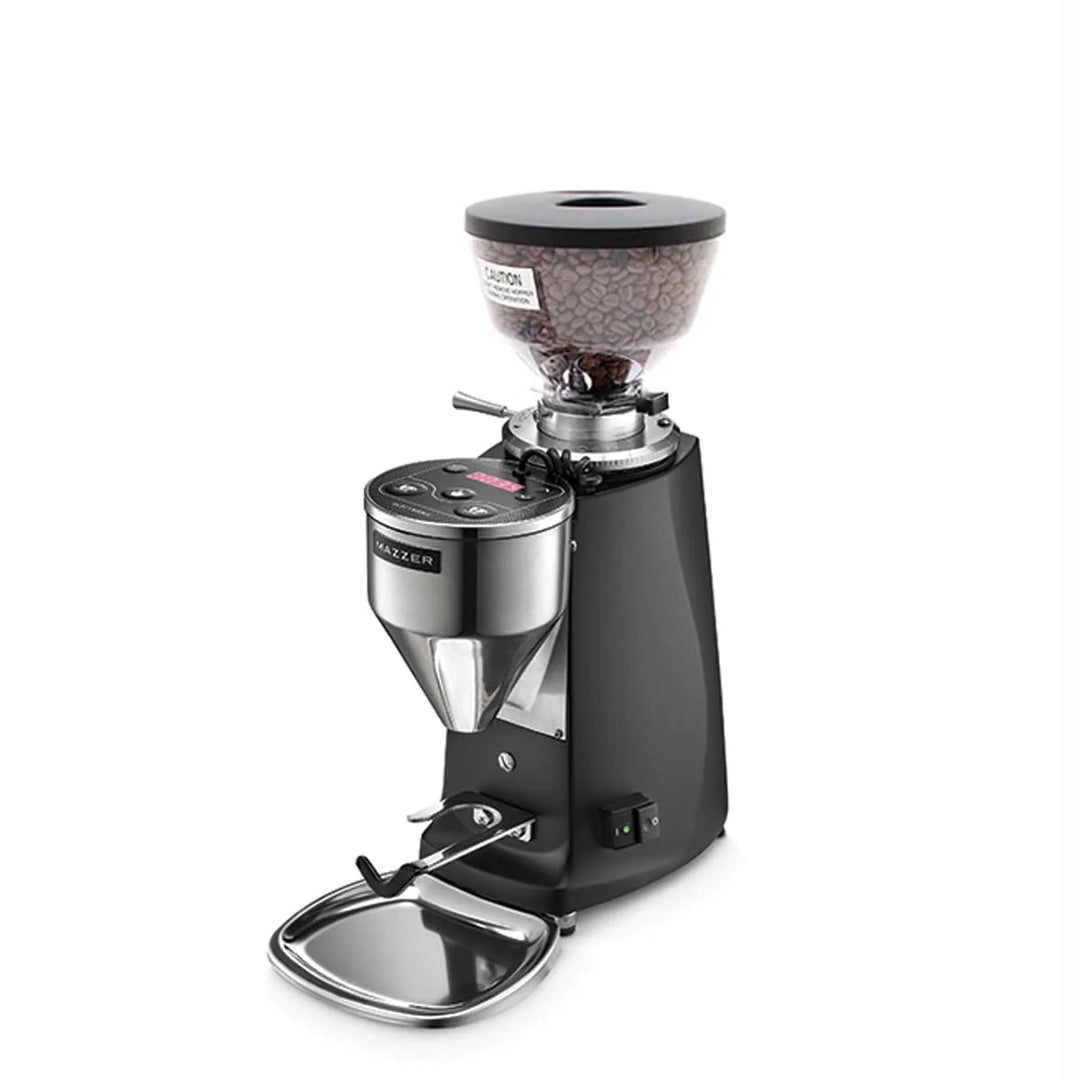Industrial Coffee Grinder: Selecting the Best Model for Your Business
Industrial Coffee Grinder: Selecting the Best Model for Your Business
Blog Article
How to Choose the Perfect Industrial Coffee Mill for Your Service
Choosing the perfect industrial coffee mill for your organization is a complex decision that calls for cautious consideration of numerous important aspects. It is important to evaluate your details grinding requirements, including the volume of coffee refined and the preferred grind uniformity, as these elements directly influence flavor and customer fulfillment. Additionally, understanding the different kinds of mills available can dramatically influence your functional performance. As you navigate these factors to consider, one need to also evaluate the implications of budget plan and upkeep. What various other variables could make or break your choice?
Assess Your Grinding Requirements
When picking an industrial coffee grinder, one should initially analyze their grinding needs to guarantee ideal efficiency and consistency. This preliminary analysis involves comprehending the volume of coffee to be processed daily, in addition to the preferred work dimension for different brewing methods. A high-capacity grinder may be essential for companies offering large amounts of coffee, while smaller sized procedures may locate a more compact model sufficient.
Additionally, it is necessary to take into consideration the sorts of coffee beans being used, as various beans might need certain grinding techniques to achieve the most effective flavor account. Oily beans could require a grinder developed to handle such characteristics without overheating or clumping.
An additional important factor is the called for work uniformity. Specialty coffee companies frequently require specific grind sizes to boost removal and flavor, making it crucial to pick a grinder that can supply consistent results. Ultimately, examining the available room and electrical requirements will certainly help in picking a mill that fits effortlessly into your functional operations. By extensively evaluating these variables, organizations can make educated choices that align with their coffee grinding requirements, ultimately causing a premium item and satisfied clients.
Understand Mill Types
Comprehending the different kinds of commercial coffee grinders is important for making an educated selection that satisfies certain functional requirements. There are mainly two groups of mills: blade grinders and burr mills.
Blade mills utilize spinning blades to chop the coffee beans, leading to an inconsistent work dimension - Industrial Coffee Grinder. While they might be a lot more affordable, they are frequently not suitable for industrial applications where precision is vital
On the other hand, burr grinders provide a more uniform grind by crushing the beans between two surfaces. They can be further classified right into level burr and conical burr grinders. Apartment burr mills use a regular work dimension and are commonly preferred for coffee preparation, while conelike burr mills are flexible and can manage a series of brew techniques, from coffee to French press.
When choosing a mill, take into consideration the specific requirements of your company, consisting of desired work uniformity, production volume, and the kinds of coffee drinks you prepare to offer - Industrial Coffee Grinder. Each mill kind has its constraints and advantages, so understanding these subtleties makes it possible for notified decision-making that aligns with functional objectives
Evaluate Grind Size Uniformity
Accomplishing grind dimension consistency is crucial for generating high-grade coffee, as variants in particle dimension can considerably impact removal and taste. When selecting a commercial coffee grinder, it is essential to evaluate just how well the maker maintains harmony in grind dimension across various batches. Irregular grind dimensions can result in irregular extraction, causing a mug that may taste extremely bitter or weak.
To assess work size consistency, consider grinders with attributes such as adjustable work settings and high-grade burrs. Burr grinders, in specific, master generating uniform fragment sizes contrasted to his explanation blade mills. The material and shape of the burrs play a vital function, with stainless-steel and ceramic choices offering durability and accuracy.

Think About Manufacturing Ability
In the fast-paced globe of coffee production, taking into consideration production capability is extremely important for companies aiming to satisfy need without giving up top quality. The manufacturing ability of an industrial coffee grinder straight affects a firm's capacity to fulfill orders efficiently, manage stock, and reply to changing market patterns.
When analyzing manufacturing ability, it is important to examine the grinder's outcome rate, generally measured in pounds per hour. This dimension should align with your business's projected sales quantity and development targets. For circumstances, a coffee shop with a high turn over may require a grinder that can process numerous hundred extra pounds daily, while a smaller procedure might be adequate with a reduced capability design.
In addition, take into consideration the kind of coffee being processed. Different beans and blends might affect grinding rate and performance, requiring a grinder efficient in handling varied production demands. It's additionally worth considering the grinder's capacity to preserve consistent high quality under high output problems, as any type of variations can affect the last item.
Ultimately, choosing a grinder that matches your organization's production capacity will certainly ensure you continue to be competitive and receptive to customer assumptions.

Spending Plan and Upkeep Elements
When examining the appropriate industrial coffee budget, upkeep and grinder elements play a considerable function in the overall decision-making process,. A first financial investment in a top quality mill can generate long-term benefits, however it's important to establish a clear budget that aligns with your service's functional demands. Consider both the purchase cost and prospective functional expenses, such as power intake and substitute parts.
Industrial coffee grinders require normal maintenance to make sure optimum efficiency official site and durability. Assess the producer's recommendations for upkeep, consisting of cleaning schedules and parts substitute, as these will affect lasting functional expenses.

Buying a mill that is durable yet very web link easy to preserve can save cash over time. While lower-priced alternatives may be tempting, they might incur greater maintenance prices and decreased performance. Eventually, stabilizing initial prices with long-lasting upkeep and operational performance will assist you to the very best selection for your service's coffee grinding needs.
Final Thought
Selecting the excellent industrial coffee mill necessitates a thorough evaluation of grinding requirements, grinder types, grind dimension consistency, production capability, and financial considerations. By focusing on these aspects, services can make certain the purchase of a dependable, effective mill that meets particular functional demands. An appropriate mill not only enhances the high quality of the coffee generated but likewise adds to the total success and profitability of the business. Long-lasting efficiency and maintenance simplicity need to continue to be main to the decision-making process.
Specialty coffee companies typically demand accurate grind sizes to enhance removal and flavor, making it important to select a grinder that can deliver consistent outcomes. Apartment burr grinders offer a consistent work dimension and are commonly preferred for coffee preparation, while conical burr grinders are functional and can take care of an array of mixture techniques, from espresso to French press.
When picking a commercial coffee grinder, it is essential to evaluate just how well the equipment preserves uniformity in work dimension across various sets. Burr mills, in certain, succeed in creating uniform particle dimensions compared to blade grinders.Picking the ideal industrial coffee grinder demands a comprehensive assessment of grinding demands, grinder types, grind dimension uniformity, production capacity, and monetary considerations.
Report this page